The holiday season brings joy, decorations, and delicious food, but it can also introduce a range of hazards for your pets. Have you ever wondered how to keep your furry companions safe amidst all the festivities? At Westerville Veterinary Clinic, located in the heart of Westerville, Ohio, we’re committed to helping you protect your pets from common holiday dangers. From toxic foods to risky decorations, we’ll guide you through the top hazards and how to avoid them, so your pets can enjoy a safe and happy holiday season.
Common Holiday Hazards for Pets
Foods to Avoid
Holiday gatherings often feature an abundance of food, but not all of it is safe for pets. Here are some common holiday foods that can pose a serious risk:
- Chocolate and Caffeine: Chocolate contains theobromine, a chemical that is toxic to both dogs and cats. Even small amounts can lead to vomiting, diarrhea, or more severe symptoms such as seizures.
- Xylitol: This artificial sweetener is often found in sugar-free candies, gums, and baked goods. Ingesting xylitol can cause dangerous drops in blood sugar and potentially life-threatening liver failure in dogs.
- Cooked Bones: While it may seem natural to toss a bone to your pet, cooked bones can splinter and cause choking, blockages, or injuries to the digestive tract.
It’s important to keep these foods out of reach and ensure guests know not to share them with your pets.
Decorations and Household Items
Holiday decorations can transform your home into a festive wonderland, but they can also present risks for curious pets. Here’s what to watch out for:
- Tinsel, Ribbons, and String: These shiny, dangling items may look like toys to pets, but if ingested, they can cause dangerous intestinal blockages, especially in cats.
- Ornaments: Glass or fragile ornaments can easily be knocked over and broken, posing a risk of cuts or ingestion.
- Electrical Cords: Pets may chew on cords, risking electric shock or burns. Be sure to keep them out of reach or use cord protectors.
Hazardous Holiday Plants
Many seasonal plants used to decorate during the holidays can be toxic to pets. These are some of the most common offenders:
- Poinsettias: These popular holiday plants are mildly toxic to pets, often causing nausea and vomiting if ingested.
- Holly and Mistletoe: Both of these festive plants are highly toxic to dogs and cats, leading to severe gastrointestinal upset, drooling, and, in severe cases, cardiovascular issues.
If you’re using these plants in your holiday décor, it’s best to place them in areas where your pets can’t access them. For a complete list of toxic plants, visit the ASPCA’s Guide to Poisonous Plants.
Stress and Anxiety
The holiday season often brings extra noise, visitors, and disruptions to your pet’s routine, which can lead to stress and anxiety. Signs of stress in pets include:
- Hiding or Withdrawal: If your pet is avoiding social interactions or hiding in quiet areas, they may be feeling overwhelmed.
- Excessive Barking or Meowing: This could be a sign of distress or discomfort due to the unfamiliar activity or noise.
- Changes in Appetite: Stress can also cause changes in your pet’s eating habits, leading to a decreased or increased appetite.
To help your pet manage holiday stress, create a calm, designated space where they can retreat when they need a break.
Recognizing Symptoms of Distress or Poisoning
It’s important to recognize the signs that your pet may have consumed something harmful or is in distress. Here are some symptoms to watch for:
- Vomiting or Diarrhea: These are common signs of ingesting something toxic.
- Lethargy or Weakness: If your pet seems unusually tired or unresponsive, it could be a sign of poisoning or another health issue.
- Tremors or Seizures: More severe symptoms that require immediate veterinary attention.
If you notice any of these symptoms, contact your veterinarian immediately. At Westerville Veterinary Clinic, we provide emergency care to help with urgent situations. For more information on when to seek veterinary help, visit our page on Pet Health Signs That Warrant a Veterinary Exam.
Preventive Measures During the Holidays
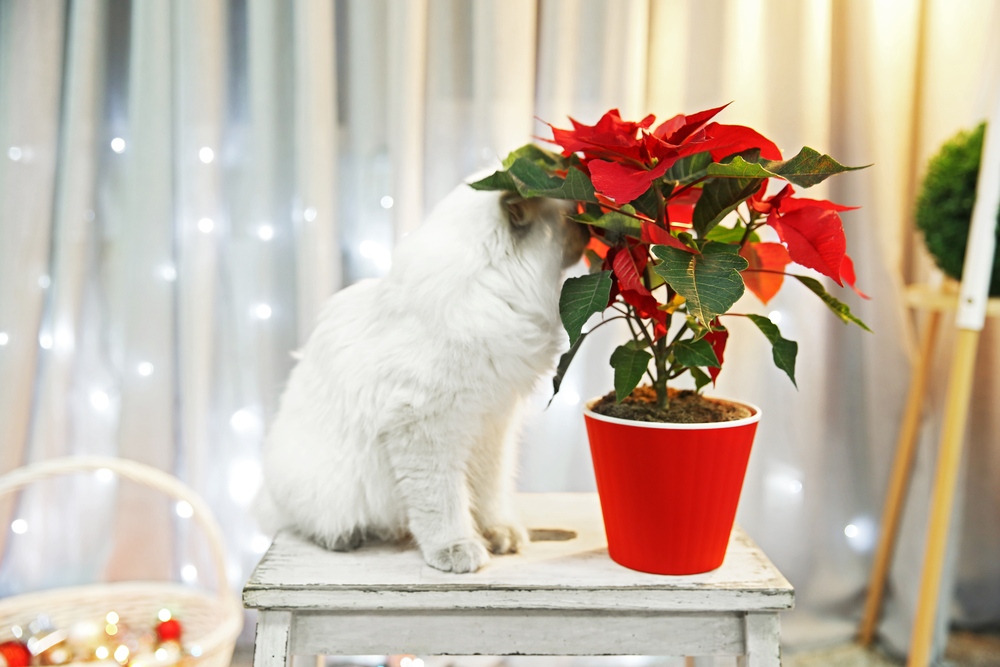
Keeping your pets safe during the holidays requires a combination of preparation and vigilance. Here are some preventive measures to consider:
- Secure Decorations: Make sure ornaments, lights, and other decorations are securely fastened and out of reach of curious pets.
- Opt for Pet-Safe Plants: Consider using artificial or non-toxic plants to avoid potential poisoning.
- Monitor Your Pet’s Diet: Stick to pet-safe treats and avoid feeding your pet from the holiday table.
By following these guidelines, you can create a safe environment for your pets, allowing everyone to enjoy the holiday season stress-free.
How Westerville Veterinary Clinic Can Help
At Westerville Veterinary Clinic, we’re here to provide comprehensive care for your pets, both during the holidays and year-round. Our services include:
- Emergency Care: Our emergency facility is equipped to handle holiday-related incidents, whether your pet has eaten something toxic or experienced an injury.
- Routine Check-Ups: Regular veterinary care is the best way to prevent health issues before they become emergencies. To learn more, visit our Wellness Plans page.
The holidays should be a time of joy and celebration for everyone in the family, including your pets. By recognizing common hazards, keeping a close eye on your pets, and knowing when to seek veterinary help, you can ensure a safe and happy holiday season. At Westerville Veterinary Clinic, we’re here to support you every step of the way.
Have questions or need assistance? Contact us today, and we’ll help you keep your pets safe throughout the festive season.


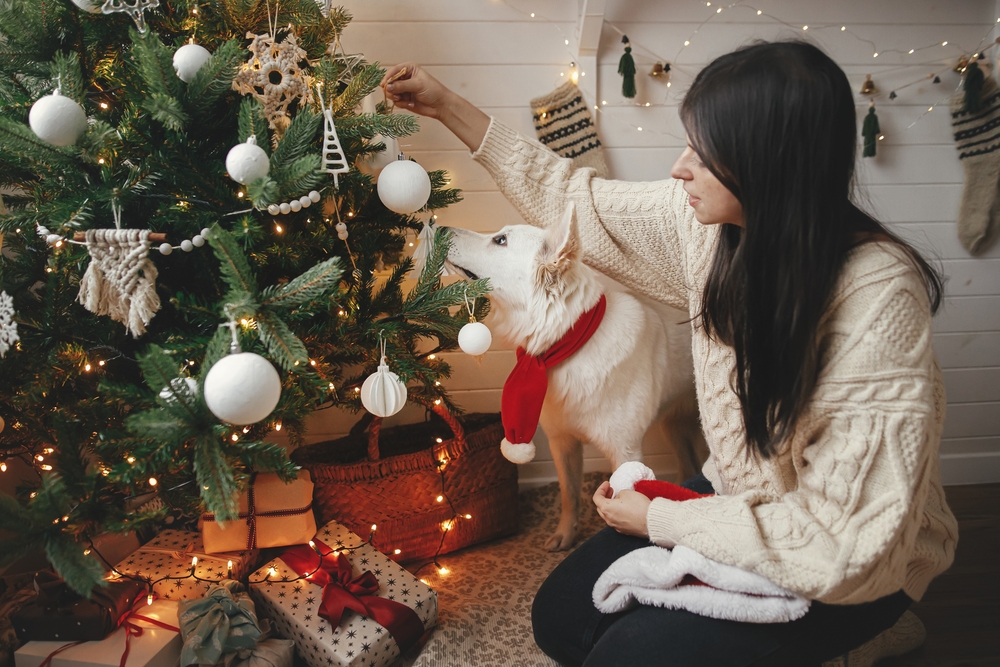
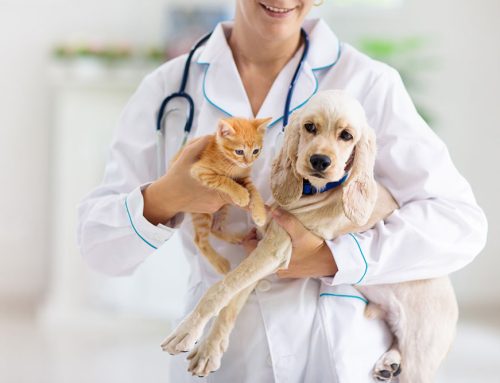
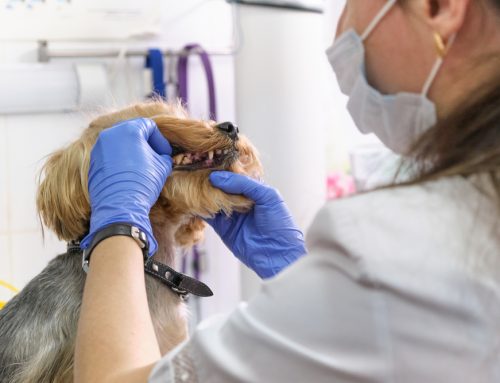
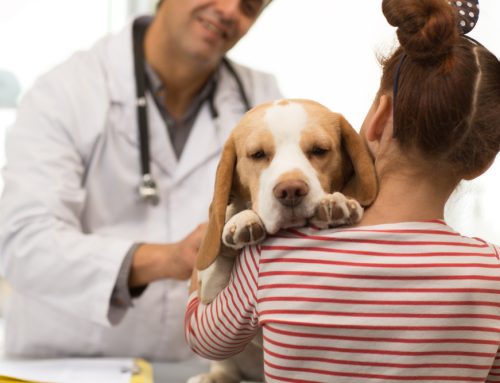
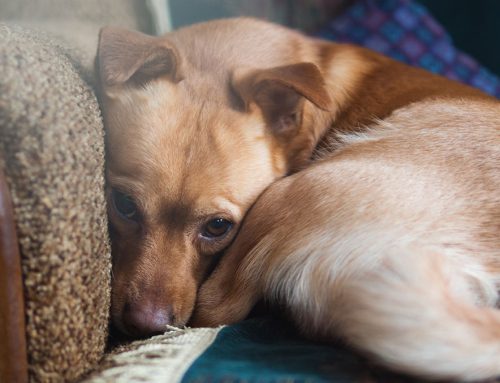
Leave A Comment